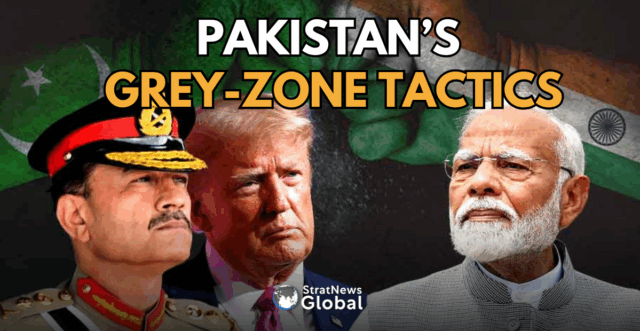Here’s a depressing fact about India’s Pakistan problem: there doesn’t seem to be any way around it, or none where India can walk away confident that victory has been achieved. Lt. Gen Ata Hasnain, former GOC 15 Corps, summed it up succinctly at a discussion in Delhi.
“We can keep doing very well politically, we can keep doing very well economically, we can get an 11% surge in the economic capability in Kashmir, but at the end of the day, militarily, have we finally achieved what we wish to achieve?”
Bean counts are not enough, he warned. India killed 2,100 terrorists in 2001; last year it was 85. By any account, it’s a huge success, yet victory eludes. Conflict stabilisation has been achieved, but the next steps in terms of conflict resolution and conflict termination don’t appear on the horizon.
Pakistan’s proxy war structure remains intact, including the training camps and launch pads. The fact is India’s decision to alter the status of Jammu & Kashmir by rendering Article 370 inoperative also compelled Pakistan to do something to remain relevant. So Pahalgam happened, the aim being to provoke a crisis, draw international attention, get Kashmir back on the UN agenda, and paint India the aggressor.
Operation Sindoor may have surprised Pakistan, but it is not going to stop them, and there will always be elements in Kashmir that will continue providing them a helping hand.
Ambassador Pankaj Saran, a former deputy national security adviser who has worked in different capacities with successive Indian Prime Ministers in the PMO, was clear that the generals in Rawalpindi would search for non-traditional ways to hurt India.
“Both its tools—terrorism and nuclear signalling—are weakening. So they’ll evolve.” Likely pivots include narcotics networks, cyber warfare, exploiting India’s internal fault lines, space-based surveillance, and even digital currencies.
“It’s a shift from conventional warfare to grey zone tactics, rooted in the realisation that India is a giant too big to swallow. I cannot see a meeting between PM Modi and Munir happening.”
India is not looking at any diplomacy with Pakistan, at least for now. He believes that Operation Sindoor wasn’t just punitive—it was diagnostic.
“We smoked out what the Pakistani army is worth,” he said. “We also got a clearer picture of the China-Pakistan military-intelligence fusion, and the US position on India and Pakistan came out of the closet. It was a good reality check for us. It’s important to test our assumptions against what’s happening in real time.”
But the future with Pakistan is now about preparing for a more militarized and more hardened Pakistan. Professor Amitabh Mattoo, Dean of International Studies at JNU, says India must go beyond retaliation. It must show consistency of purpose.
“We have to demonstrate that terrorism is no longer a low-cost strategy. Unfortunately, Pakistani media narratives suggest they haven’t learned any lessons from Operation Sindoor.”
That’s why, he argues, India’s response must be more than symbolic. “Every drop of blood in Pahalgam must have consequences—in missile, in memory, in mandate. India doesn’t seek war. But it won’t be a prisoner of caution either.”
“If Pakistan’s strategy is to bleed India, then India’s new message is this: the age of bleeding is over. The age of reckoning has begun.”
Ambassador Yash Sinha, a seasoned diplomat who has worked extensively with Pakistan adds that the situation in the valley also requires political stability accompanied by economic prosperity. “Perhaps that is one of the reasons why the ISI indulged in the misadventure it did to the Lashkar-e-Taiba in Pahalgam. Because there still is a vested interest of the people from the valley in being with India and the Indian Union and the benefits that accrue to them. That is perhaps the best answer to Pakistan.”





